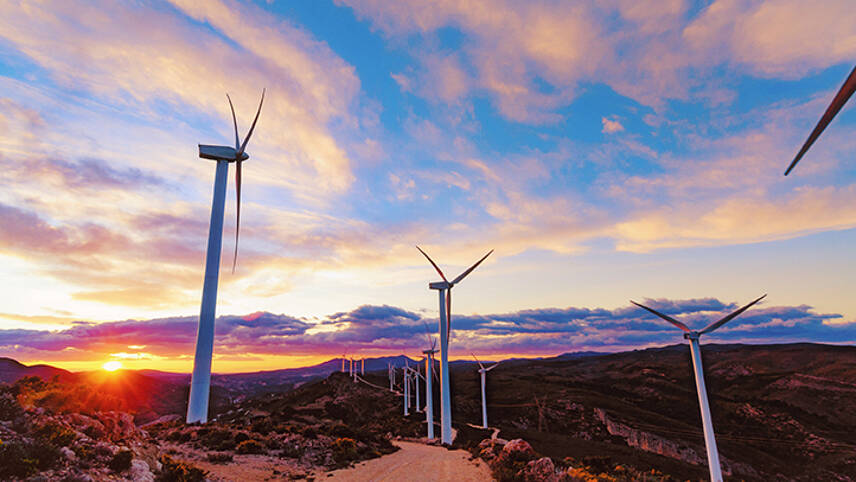Register for free and continue reading
Join our growing army of changemakers and get unlimited access to our premium content

A delayed transition may necessitate carbon capture and removal technologies taking on a prominent role.
This is according to the analysis, titled ‘A Delayed Energy Transition’, from Wood Mackenzie, an energy research and consultancy firm, exploring the implications if the world experiences a five-year delay in transitioning to renewable energy sources.
In the event of a delayed energy transition, the analysis predicts a considerable decrease in annual average spending on decarbonisation efforts, plummeting to $1.7trn. This represents a 55% reduction compared to the expenditure outlined in the report’s net-zero 2050 scenario, which is in align with the Paris Agreement targets of 1.5C to 2C.
The analysis further highlights the total investment required could reach up to just $48trn. This figure is significantly lower than the projected $75trn investment outlined in the net-zero scenario.
The report also delineates how different sectors would be impacted by a delayed transition. In this scenario, spending in the oil and gas sector would rise to 31%, while investment in power sectors is expected to stagnate at 60%.
Additionally, spending in crucial areas like hydrogen and carbon capture, utilisation and storage (CCUS) would drop to 2%, down from 8% in the net-zero scenario.
Report author Prakash Sharma said: “With half of the global population heading to polls in 2024, political realities and climate scepticism in the major emitting countries, such as the US and Europe, could reduce the support for the transition as voters seek economic security and price stability.
“The global stocktake at COP28 in December 2023 also confirmed that no major country was on track to meet the Paris-aligned commitments and that strong policy action and capital investment were necessary to accelerate the transition.
“Indeed, Europe and the UK have already pushed back 2030 climate goals and other countries may follow suit.”
Urgency of action: Bottlenecks to the transition
The analysis underscores the urgent need for accelerated action, as emissions are anticipated to peak in 2032, potentially exhausting the remaining carbon budget for a 1.5C world by 2027, and posing significant challenges for countries striving to meet the Paris Agreement goals by 2050.
The report also highlights obstacles hindering the transition to renewables-led electrification. These include transmission bottlenecks that impede near-term additions of solar and wind power, while unabated thermal supply continues to dominate flexible generation to balance power grids.
Additionally, the research identifies higher interest rates and supply chain bottlenecks as factors contributing to increased renewables costs by 10% to 20% in recent years. Consequently, the cost decline of low-carbon hydrogen is expected to be delayed, with demand forecasted to be nearly 50% lower than the base case in 2050.
The findings indicate that a delayed transition may necessitate carbon capture and removal technologies taking on a prominent role in rebalancing carbon levels and achieving long-term climate goals.
UK to grant more oil and gas exploration licenses
While the report underscores the need to expedite the energy transition, the UK Government is poised to authorise fossil fuel companies to conduct exploration for oil and gas beneath offshore wind power sites.
The North Sea Transition Authority (NSTA), tasked with overseeing North Sea oil and gas operations, has revealed plans to grant licenses to around 30 companies for hydrocarbon exploration within zones earmarked for future offshore wind farms.
The NSTA said: “The North Sea is an important resource for energy security and net-zero delivery, so it’s vital that sectors collaborate to ensure those systems can co-exist.
“Following discussions with our partners, we have introduced a new clause for overlapping oil and gas licenses and wind leases for the first time.
“This will be the main commercial mechanism for these licences to resolve spatial overlaps and to support co-existence of these important industries.”
The move has sparked discontentment within the environmental sector, with organisations urging the Government to prioritise the energy transition.
RenewableUK’s chief executive Dan McGrail said: “Whilst we welcome the efforts of the NSTA to work together on reforming the rules governing oil and gas co-location with offshore wind farms, we need much greater prioritisation of renewables over oil and gas in spatial planning.
“Prioritising offshore wind over oil and gas isn’t just the right choice for the planet, but given renewables are the lowest cost means of generating power, we should be doing this for billpayers.”


But politicians are not, generally, scientists, and vice versa.
Until there is a better understanding between the two groups, and this means better knowledge exchange between them, and more respect of each others skills and knowledge; this is unlikely to improve. Both are highly skilled areas, needful of mutual respect.
I write as a scientist, originally chemistry (the FRIC qualification, now updated).